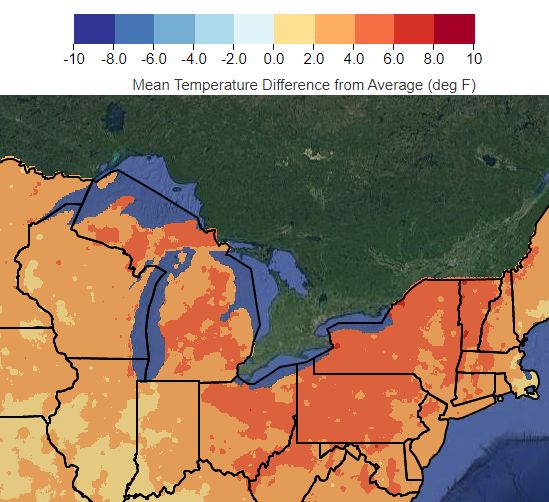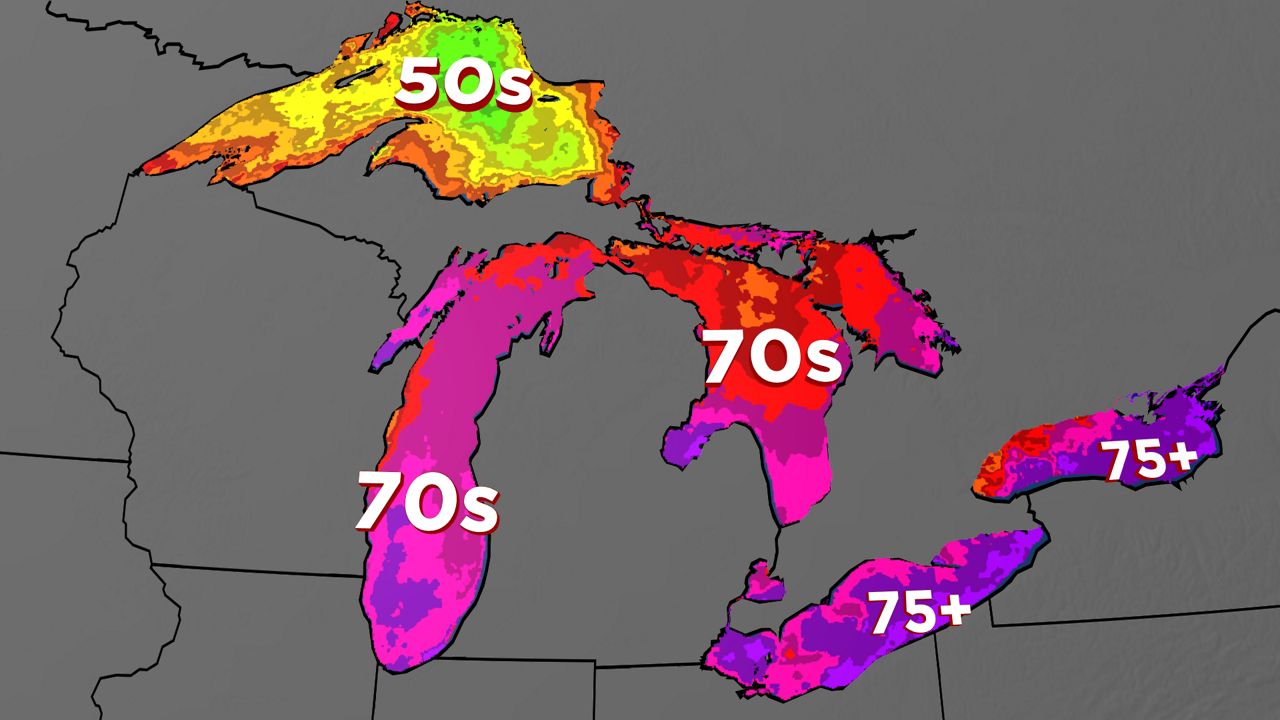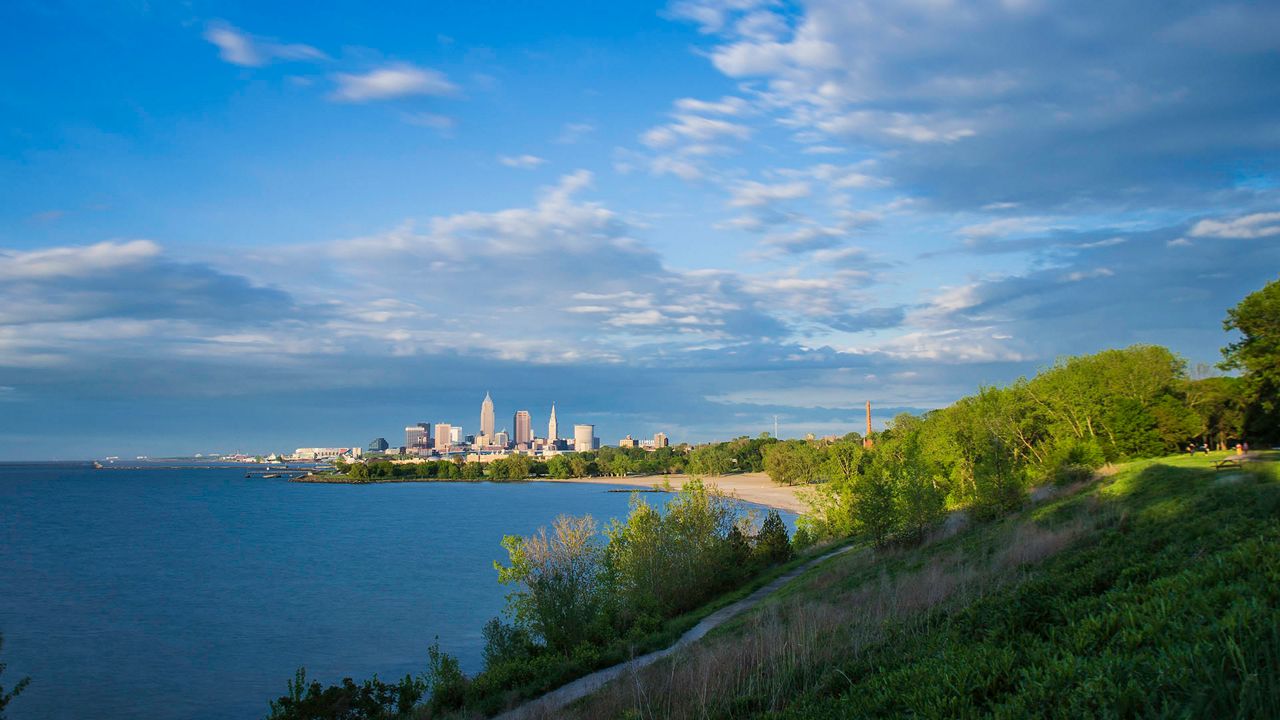The Great Lakes Region dealt with a July that was hotter than normal. The heat not only affected the land, but the waters of the Great Lakes, too.
Here are the number of record highs by state, including ties, during the month of July. This includes a variety of observers, not just airports, that have at least 30 years of record-keeping.
New York State led the pack of new records; 31 of their 46 records were new. Buffalo had eight days in the 90s last month and also had its warmest July on record.
July's average temperature was generally about three-to-five degrees above normal. Some places were as much as seven degrees above normal.

This has caused the Great Lakes to warm, too. Except for Lake Superior, most of the other lakes have temperatures that are in the 70s. Some spots even approached 80 degrees last month.

In early July, water temperatures were more than five degrees above average. That difference settled to a few degrees above average by the end of the month.
This has had an impact on fishing. "Fish like a certain temperature, and they are in deeper water this summer," says Spectrum News Meteorologist Dan Russell.
Another impact is the warm water temperatures could be a contributing factor to a harmful algae bloom over the far western reach of Lake Erie near Toledo. The biggest contributor is when heavy rain causes runoff from farms but the warm temperatures also create an attractive environment for algae to bloom. Algae blooms are just as dangerous to pets as they are to people.
Cooler weather has settled in for the first week of August. However, the Climate Prediction Center outlook for the month as a whole leans toward higher odds of temperatures being above average over the eastern parts of the Great Lakes Region.
Looking ahead to winter, the warm lakes don't guarantee a bonanza season for lake effect snow. "The biggest factor is anomalously cold air," Russell says. He adds that the water temperatures can drop quickly in the fall if there's a period of below-normal temperatures or strong winds that churn up the water. So don't give away your heavy winter jackets just yet.



